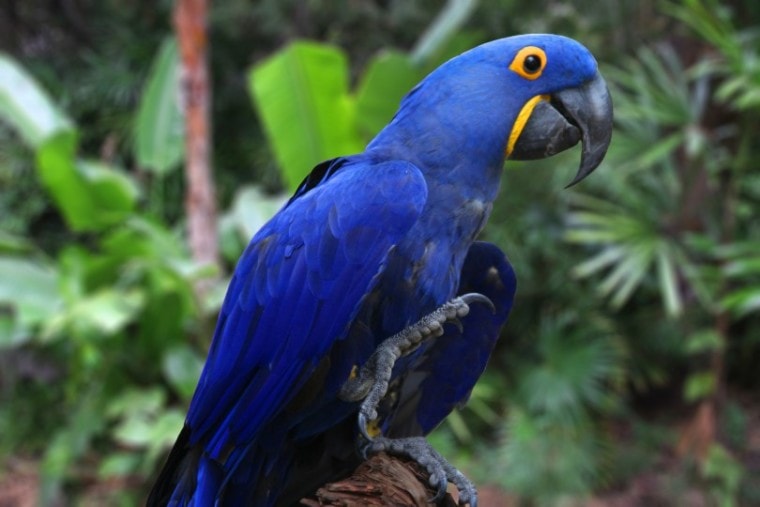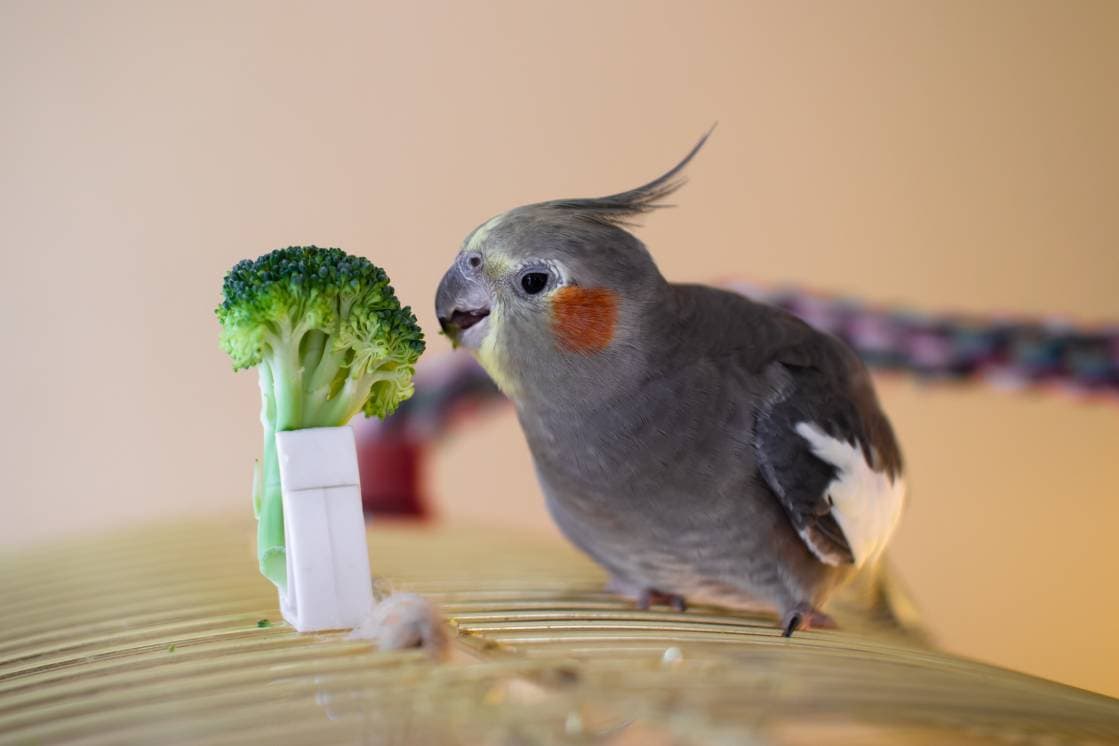
Click to Skip Ahead
Disclaimer: This article has been reviewed for factual accuracy by a veterinarian using information available at the time of publishing. Knowledge of Macaw husbandry is continually growing and this article should not be considered a substitute for veterinary advice tailored to your pet. All views and opinions expressed in this article are those of the author.
Important note: Many macaw species are endangered or threatened, so some species are not allowed to be kept as pets in many countries, and international efforts are being made to preserve macaw biodiversity in the wild. As a responsible bird owner, you should ensure that your macaw comes from a reputable breeder and has the necessary papers your country requires by law.
Macaws are incredibly beautiful and intelligent birds that, although expensive, are relatively popular pets among people who prefer large birds. These interesting animals can bond closely with their people, making them excellent companions. If you’ve ever considered getting a macaw, though, then you may have had people tell you that the bird will likely outlive you. Is this actually true?
This article will focus on the lifespan of the blue and yellow macaw (Ara ararauna) and the red and green macaw (Ara chloropterus) and how to help them thrive. On average a blue and yellow macaw will live around 30-35 years, but it’s not uncommon for them to live up to 50. The red and green macaw lives around 50 years, but have been recorded to live into their 60’s.
The Average Lifespan of a Pet Macaw
Believe it or not, people are right when they tell you that the bird may outlive you! Anecdotal reports suggest Macaws can potentially live as long as 100 years under the right conditions!
A long lifespan only occurs with proper care and good health, so make sure to provide your macaw with all of the advantages that can provide them with a long, happy life.
How Long Do Macaws Live in the Wild?
Like many animals, macaws tend to live slightly shorter lives in the wild than they do as pets. Wild macaws can typically live between 10 and 40 in the wild, although they can exceed the age of 50. Shorter lifespans are usually attributed to a lack of medical care, disease, food shortages, habitat destruction, and predation.

How to Care for Your Macaw for a Long Lifespan?
Feeding & Diet
Macaws are primarily herbivorous birds, but they will eat meat, insects, and mollusks in the wild as well. The diet of a macaw primarily consists of fresh fruits, flowers, leaves, stems, nuts, and seeds. Captive macaws should also receive a commercially formulated pellet food for their species, which is formulated to ensure all of their nutritional needs are addressed. In addition, providing safe fruits, vegetables, nuts, and the occasional piece of egg or meat, will add some healthy variety into their diet. They need more fat than other birds, but too much will lead to health problems so ask your veterinarian about your bird’s weight and diet.
Environment
Macaws are very large birds that need lots of space in a place that somewhat mimics their natural environment. They should have a large enclosure with perches, toys, vegetation, and room to fly. An area for bathing and clean drinking water should also be provided. If you don’t have the space to keep a full aviary in your home, then you may need to bird-proof your home to allow your macaw time around the house to stretch their wings and explore.

Care
There are many needs that these birds have, and they can be complicated to keep. It’s essential to thoroughly research all of the care needs, from diet and medical care to socialization, environment and handling, before you bring home a macaw.
Cleaning
Showering, misting, and hand spraying are all great ways to help keep your macaw clean. Many of them love to shower. Clean their food and water dishes regularly with soap and warm water. Keep clean substrate in their aviary or enclosure, and make sure to change the substrate out as it becomes soiled or wet. The entire aviary should be wiped down with bird-safe cleaning supplies regularly as well.
Pairing/Breeding
If you are inexperienced in bird breeding, it’s not advisable to attempt to breed your macaw without guidance from an experienced breeder. Macaws typically breed during the spring and early summer months, every year or two, depending on species. You can expect two to four eggs per clutch, but some birds may have more or less. Incubation of macaw eggs lasts around 23–28 days.

Healthcare
Having your macaw evaluated by an avian vet every 6–12 months is important for maintaining their health and catching new health conditions early. Some birds may require more frequent visits for nail and beak trims. If your bird develops signs of illness, including excessive oral mucus, lack of appetite, diarrhea, weight loss, or feather plucking, then they should see a vet as soon as possible.
The Life Stages of a Macaw
1. Hatchling
Also known as neonates, hatchlings are the name that macaws are given immediately after hatching. They hatch without feathers, and they are blind, making them fully dependent on care from their parents or humans. Parents will regurgitate food into their mouths, while humans typically feed macaw hatchlings through a syringe.
2. Nestling
Once a macaw’s eyes open, they become known as a nestling. It’s during this time that imprinting occurs, making this an important time for macaws to become used to seeing humans.

3. Fledgling
Slightly older macaws will begin learning how to fly, making them fledglings. Fledglings still require the care of their parents or human handlers for food, but they will begin to work on learning how to use their wings during this stage.
4. Juvenile
Once macaws have learned to fly, they will begin to wean themselves onto an adult diet. At this time, they become known as juveniles. Hand-reared macaws will likely need human intervention to fully wean them onto their adult diet.
5. Adulthood
Macaws are considered juveniles until they reach sexual maturity, which can occur around 2–4 years of age, with some species not reaching sexual maturity until closer to 6–7 years of age. Between the juvenile and adult stages, macaws go through significant physical changes, as well as changes in their temperament and personality.

Conclusion
Macaws are exceptional birds that can make great pets for people who fully understand and are committed to meeting their needs. Their long lifespan can pose problems, though. It may be necessary to list instructions in your will for how your bird should be cared for or who should take the bird in the event of your own death. These birds can, and often do, outlive their owners. Having to adapt to a new owner can cause considerable stress to these beautiful birds.
Featured Image Credit: NaturePixel, Shutterstock









